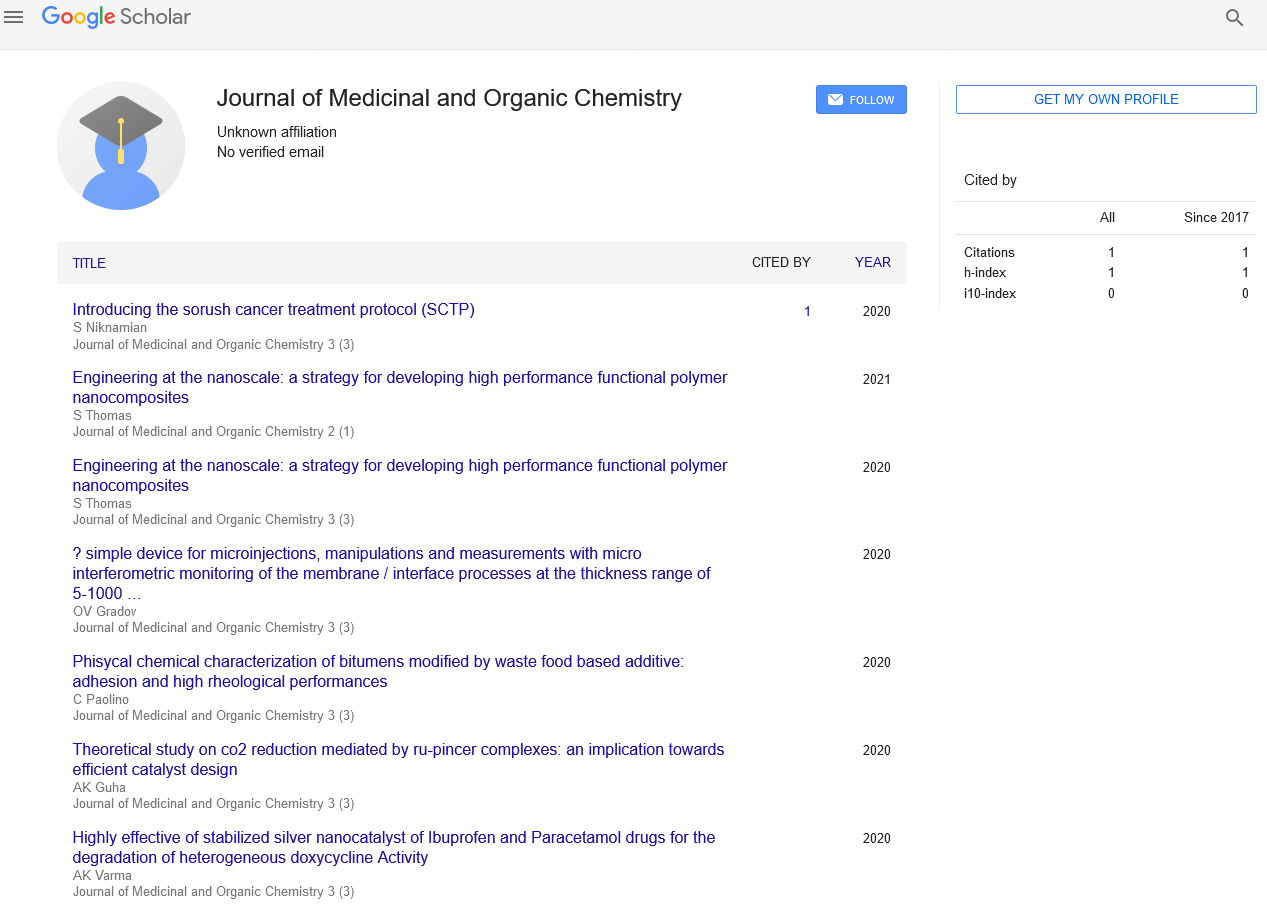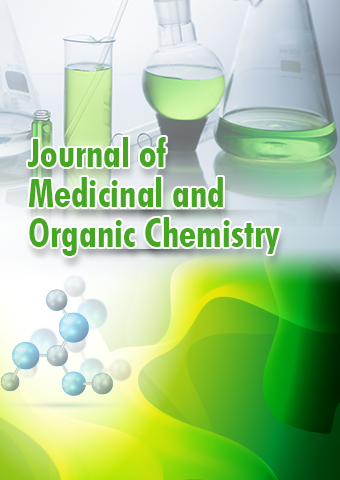Perspective - Journal of Medicinal and Organic Chemistry (2024) Volume 7, Issue 3
Nourishing the Body and Mind: Exploring the Transformative Power of Nutrition
- Corresponding Author:
- Anne Reza
Department of Health Science,
University of Ruben,
Bristol,
United Kingdom
E-mail: rezaanne@ucl.ac.uk
Received: 04-May-2024, Manuscript No. jmoc-24-134125; Editor assigned: 08-May-2024, PreQC No. jmoc-24-134125 (PQ); Reviewed: 22-May-2024, QC No. jmoc-24-134125; Revised: 07-Jun-2024, Manuscript No. jmoc-24-134125 (R); Published: 14-Jun-2024, DOI: 10.37532/jmoc.2024.7(3).217-218
Introduction
Nutrition serves as the cornerstone of health and well-being, providing the essential nutrients that fuel our bodies and minds. Beyond mere sustenance, nutrition plays a profound role in shaping our health outcomes, influencing everything from physical vitality to cognitive function and emotional resilience. In this article, we embark on a journey through the fascinating realm of nutrition, uncovering its multifaceted impact on human health, exploring the latest research findings, and unveiling the keys to achieving optimal nutrition for life-long vitality.
Description
The foundations of nutrition
At its core, nutrition is the science of nourishment-the study of the nutrients and substances in food and their effects on health. The human body re quires a di verse array of nutrients to function optimally, including macronutrients such as carbohydrates, proteins, and fats, as well as micronutrients such as vitamins, minerals, and phytochemicals. These nutrients serve as the building blocks of life, supporting growth, repair, and metabolic processes at the cellular level.
Key principles of nutrition
Nutrition is governed by several key principles that underpin its practice and application:
Balanced diet: A balanced diet is essential for meeting the body’s nutritional needs and maintaining optimal health. It encompasses a variety of nutrient-rich foods from all food groups, including fruits, vegetables, whole grains, lean proteins, and healthy fats. A balanced diet provides essential nutrients in appropriate proportions, supporting overall health and reducing the risk of nutrient deficiencies and chronic diseases.
Nutrient density: Nutrient density refers to the concentration of essential nutrients in a food relative to its caloric content. Nutrient-dense foods, such as fruits, vegetables, legumes, and nuts, provide a high level of vitamins, minerals, and antioxidants per calorie, making them valuable sources of essential nutrients for health and longevity. Incorporating nutrient-dense foods into the diet can help optimize nutrient intake and support overall well-being.
Moderation and variety: Moderation and variety are key principles of a healthy diet, promoting a diverse and balanced intake of nutrients while avoiding excess calories, saturated fats, added sugars, and sodium. By consuming a wide range of foods from different food groups and minimizing the consumption of processed and ultra-processed foods, individuals can ensure adequate nutrient intake, maintain healthy body weight, and reduce the risk of diet-related diseases.
The impact of nutrition on health
Nutrition exerts a profound influence on virtually every aspect of health and well-being, shaping our physical, mental, and emotional vitality. Key areas of impact include:
Physical health: Proper nutrition is essential for maintaining physical health and preventing chronic diseases such as obesity, diabetes, cardiovascular disease, and certain types of cancer.
A balanced diet rich in fruits, vegetables, whole grains, and lean proteins supports healthy weight management, reduces inflammation, improves cardiovascular health, and strengthens the immune system, lowering the risk of chronic diseases and enhancing overall longevity.
Cognitive function: Nutrition plays a critical role in supporting cognitive function and brain health throughout the lifespan. Nutrients such as omega-3 fatty acids, antioxidants, vitamins, and minerals are essential for neurotransmitter synthesis, neuronal communication, and neuroplasticity, influencing cognitive processes such as memory, learning, and mood regulation. Optimal nutrition supports cognitive development in children, enhances cognitive performance in adults, and may reduce the risk of age-related cognitive decline and neurodegenerative diseases such as Alzheimer’s disease.
Mental health: Nutrition is closely linked to mental health and emotional well-being, with dietary patterns influencing mood, stress resilience, and mental health outcomes. Poor nutrition, characterized by high intake of processed foods, refined sugars, and unhealthy fats, has been associated with an increased risk of depression, anxiety, and other mental health disorders. Conversely, a diet rich in nutrientdense foods such as fruits, vegetables, whole grains, and lean proteins can support mental health, reduce stress, and improve overall mood and emotional resilience.
Strategies for achieving optimal nutrition
Achieving optimal nutrition requires a holistic approach that encompasses dietary choices, lifestyle behaviors, and environmental factors. Key strategies for promoting optimal nutrition include:
Practice portion control: Pay attention to portion sizes and practice mindful eating to avoid overeating and promote satiety. Use smaller plates and bowls, savor each bite, and listen to your body’s hunger and fullness cues to prevent mindless eating and promote balanced energy intake.
Practice mindful eating: Cultivate mindfulness and awareness around your eating habits by paying attention to the sensory experience of eating, including taste, texture, and aroma. Avoid distractions such as screens and electronic devices while eating, and savor each bite to enhance enjoyment and satisfaction from meals.
Conclusion
Nutrition is far more than just fuel for the bodyit is the foundation of health and vitality, shaping our physical, mental, and emotional well-being in profound ways. By embracing the principles of balanced nutrition, prioritizing whole, nutrientdense foods, and adopting healthy eating habits and lifestyle behaviors, we can nourish our bodies and minds, optimize our health outcomes, and cultivate a vibrant and fulfilling life at every stage of the journey.

